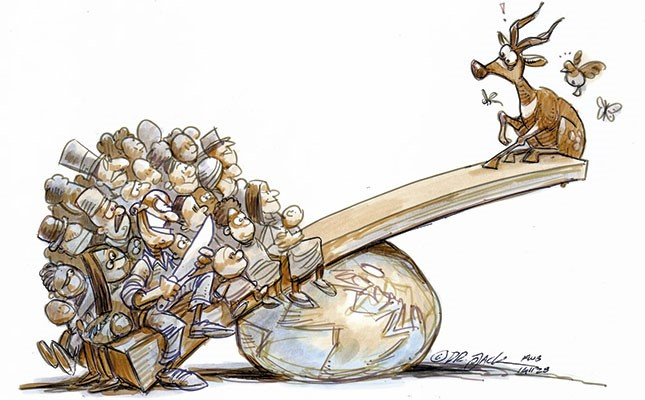In December 2019, the Parliament of India passed the Citizenship Amendment Act (CAA), and within a couple of days, it received assent from the President of India, and it became a law. The provision of the act says that “persons belonging to the Hindu, Sikh, Buddhist, Jain, Parsi, or Christian community from Afghanistan, Bangladesh, and Pakistan who entered India on or before December 31, 2014 and who have been exempted by the Government of India from the application of the provisions of the Passport (Entry into India) Act, 1920, the Foreigners Act, 1946, or any other order made thereunder shall not be treated as illegal migrants for the purpose of this Act”i. Furthermore, the CAA stipulated that the personnel belong to the above-mentioned communities: those who fled the countries of Pakistan, Bangladesh, and Afghanistan due to religious persecution or fear; therefore, before December 2014. The CAA will not apply to the tribal areas of Assam, Meghalaya, Mizoram, and Tripura (included in the sixth schedule of the Indian constitution).
Background of the CAA
- The Government of India issued two notifications on September 7, 2015, and July 18, 2016, amending the Passport (entry into India) Rules and Foreigners Order 1948.
- On July 19, 2016, the Citizenship Amendment Bill (CAA Bill) was first introduced in the Lok Sabha.
- On January 7, 2019, the Joint Parliamentary Committee’s report was submitted.
- On January 8, 2019, the Citizenship Amendment Bill was passed by the Lok Sabha but lapsed with the dissolution of the 16th Lok Sabha.
- On December 9, 2019, the bill was introduced again by the Minister of Home Affairs, Amit Shah.
- On December 10, 2019, Lok Sabha passed the bill.
- On December 11, 2019, the Rajya Sabha passed the bill.
- On December 12, 2019, the bill got the Indian President’s assent.
- On March 11, 2024, the Government of India notified the Citizenship (Amendment) Rules and Constitutional Provisions of the CAA.
- On May 15, 2014, the Ministry of Home Affairs issued its first set of citizenship certificates.
Criticism against the CAA
- The law provides citizenship based on religion, and it avoided Muslim religious personnel.
- It violates Article 14 of the Constitution and the principle of secularism.
Constitutional Provisions of the CAA
- Articles 5–11 of the Indian Constitution deal with the concept of citizenship.
- Article 11 of the Constitution empowers Parliament to regulate the right to citizenship by law.
- In 1955, the Indian Citizenship Act was passed. As per this act, a person can acquire citizenship by birth, descent, registration, naturalization, or incorporation of territory (by the Government of India).
- Previously, in 1986, 1992, 2003, 2005, and 2015, various amendments were brought to the Indian Citizenship Act of 1955.
Judicial Intervention
Now, the CAA and the CAA Rules of 2024 are under challenge in the Supreme Court. However, the Supreme Court refused to stay the CAA and the CAA Rules. The case is now before the division bench of the Supreme Court, led by Chief Justice D.Y. Chandrachud. More than 230 matters were tagged in the case. The political party of the Indian Union of Muslim Leagues (IUML) is the leading petitioner, represented by senior advocate Kapil Sibal.
https://indiancitizenshiponline.nic.in/Documents/UserGuide/E-gazette_2019_20122019.pdf
Dr. Binu Joseph
Assistant Professor NAGLS, Bangalore










